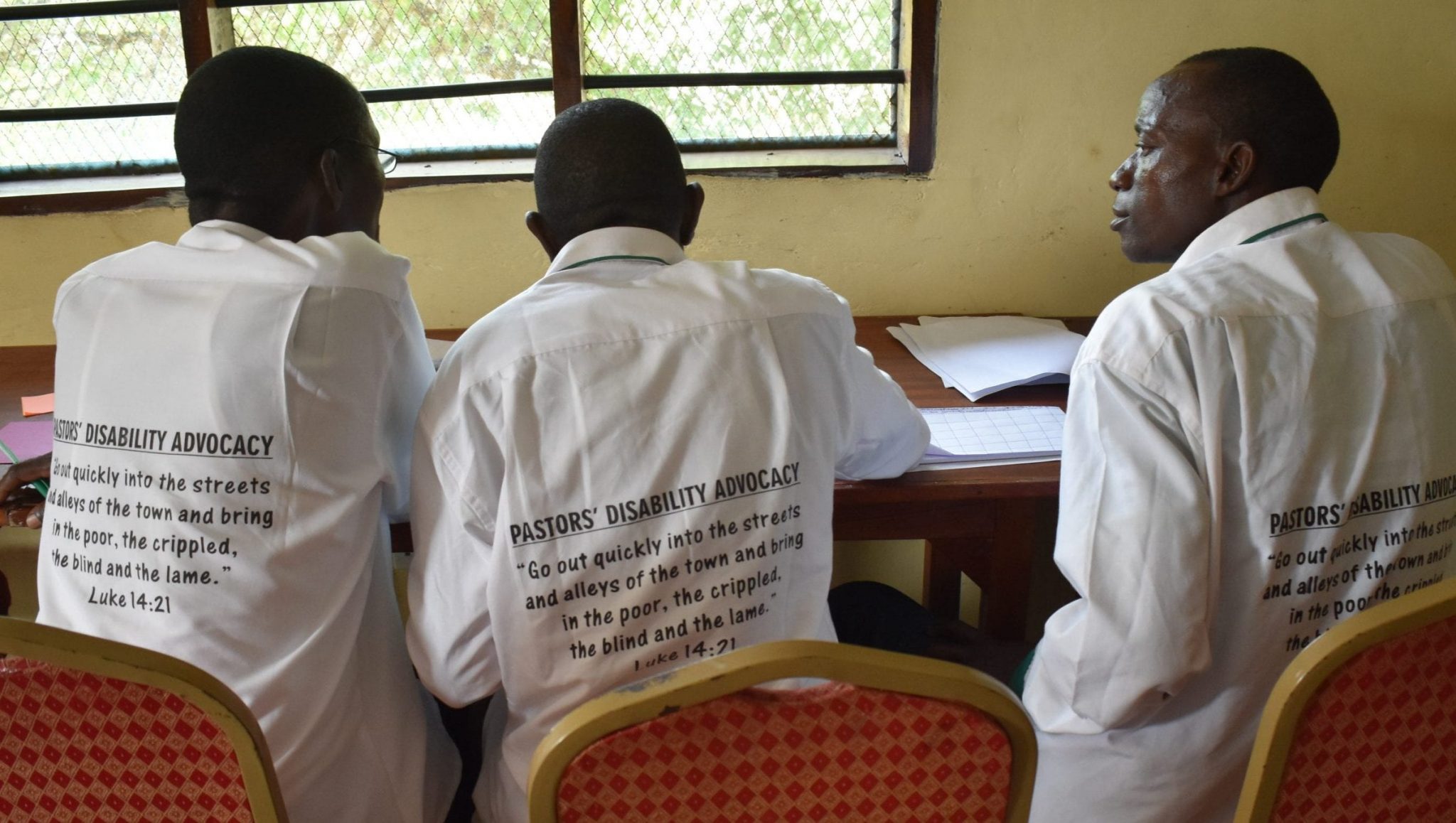Community Leaders as Advocates and Design Partners in Disability Inclusion
by Kupenda
Posted on July 11, 2018
Twenty years ago an American graduate student traveled to Kenya to study wildlife biology but returned home with much more than her field notes. Over the next few years, Cynthia Bauer’s exposure to disability injustices in Kenya and her own experiences living with a disability would propel her to found Kupenda for the Children alongside Leonard Mbonani, a Kenyan special education professional. Today Cynthia and Leonard’s organization has supported thousands of children with disabilities in accessing education, medical care and loving inclusion in community life.
Cynthia and Leonard understand that sustainable solutions for children with disabilities cannot be limited to direct service. Therefore, although Kupenda provides direct support to children in crisis, the bulk of its work focuses on activating community leaders to care for these children. In Kenya, such leaders include pastors, traditional healers and government officials – some who support children with disabilities but many whose practices erode the structures designed to help these children. Pastors and traditional healers, for example, often conduct “healing practices” such as exorcisms, cutting, burnings and burials that endanger children with disabilities. In addition, others share inaccurate information that encourages community members to discriminate against children and neglect, abuse or even murder them.
In response to these challenges, Kupenda applied for a grant under Amplify, a program funded through the United Kingdom’s Department for International Development (DFID) and administered through IDEO.org, to expand its disability advocacy training program for community leaders. This grant came, not only with funding, but also with an invaluable partnership with IDEO.org which provided training and guidance on human-centered design and allowed for exploration and growth in developing the advocacy program.. Over the past nine months, this support has allowed Kupenda to refine and document all aspects of its training program and develop and test reporting tools that show the program’s long-lasting impact on quality of life for children living with disabilities.
Most importantly, the Amplify support has enabled Kupenda to refine its strategies and tools with regular, in-depth feedback from the populations these programs serve. Community leaders now “own” these handbooks and reporting tools and serve as liaisons in supporting families impacted by disability. Furthermore, the dozens of beneficiaries who have participated in Kupenda’s feedback sessions now see themselves as design partners and are committed to making the program as effective, culturally sensitive and sustainable as possible.
Although user feedback has always been part of Kupenda’s work, this grant has helped the team to formalize its human-centered design strategies and apply them more broadly across the organization’s Advocacy, Education and Medical Care programs. As part of this process they’ve also become comfortable prototyping innovative ideas generated through their users – including a disability advocacy song, an advocacy t-shirt campaign, and a tailored training for traditional birth attendants.
Although Kupenda is just half way through its grant, the data it has gathered is already energizing its staff, Board, funders and beneficiaries. For example, when program data from April showed that just 14 trained pastors were reaching nearly 10,000 community members with disability advocacy messages and improving care and inclusion for 68 families impacted by disability, the response was more than enthusiastic. Already one new funder is supporting Kupenda’s expansion into Sierra Leone, another has invited the organization to apply for a grant to pilot test its program in Haiti, and more than a dozen leaders across Zambia, Tanzania and Kenya are asking Kupenda to run the program with their beneficiary populations.
“Amplify’s guidance has been invaluable at this critical phase of our growth,” said Cynthia. “Their design support has helped us change negative community stigma about disability which is improving the lives of thousands of families impacted by disabilities!”
Want to keep updated with Kupenda and Kuhenza’s work? You can follow them on Facebook, Instagram, LinkedIn, and Twitter. And please also sign up for their monthly newsletter and updates here.
If you’re interested in supporting one of the many children they serve, head over to their sponsorship page to learn about how you can make a difference for just $30 / month.




Leave a Reply